Water safety legislation isn’t exactly thrilling reading. However, unlike other mundane tasks you might put off, ignoring Legionella regulations could result in severe consequences: substantial fines, criminal prosecution and reputational damage that can haunt an organisation for years.
Welcome to the complex and consequential world of Legionella law, where understanding your legal obligations isn’t just good practice – it’s essential business survival.
At HCS, we’ve spent over 30 years helping organisations navigate the intricacies of Legionella legislation across the UK, in this blog post our experts will walk you through everything you need to know about UK compliance (without the legal jargon headache).
The Legal Landscape: A Complex Framework
The UK regulatory framework surrounding Legionella control is comprehensive and multifaceted, reflecting the serious nature of the health risks involved.
Here’s your essential guide to the key legislation you need to understand:
- Health and Safety at Work Act 1974: The foundational legislation establishing that employers have a duty to ensure the health and safety of employees and others who may be affected by their activities.
- Control of Substances Hazardous to Health Regulations 2002 (COSHH): These regulations specifically require employers to control substances that are hazardous to health, including biological agents like Legionella.
- L8 Approved Code of Practice (ACOP): This crucial document provides practical guidance on how to comply with legal requirements. Courts regard this as evidence of proper practice, and deviations must be justified with equally effective measures.
- HSG274 Technical Guidance: This three-part technical document offers detailed advice on different water systems: Part 1 covers evaporative cooling systems, Part 2 addresses hot and cold water systems, and Part 3 deals with other risk systems.
- HTM 04-01 (Healthcare): Healthcare premises must follow these additional specialised guidelines due to the vulnerable nature of patients and the complexity of healthcare water systems.
Who Bears Legal Responsibility?
Understanding who holds legal accountability for Legionella control is critical. The “duty holder” bears legal responsibility and typically includes:
- The employer
- The person in control of the premises
- The landlord
- The building owner or manager with responsibility for water systems
If you occupy any of these roles, you have specific legal obligations that cannot be delegated away entirely, even when you contract specialists. While you can appoint a “responsible person” to oversee day-to-day management, ultimate accountability remains with the duty holder.
Learning from Others’ Mistakes
Examining real cases helps illustrate the serious consequences of non-compliance:
High-Profile Hotel Case: A prominent UK hotel chain faced fines exceeding £200,000 after an outbreak of Legionnaires’ disease among guests. Investigation revealed they had a water management programme that appeared comprehensive on paper but lacked proper implementation and monitoring. Regular testing had been reduced to cut costs, a decision that proved devastatingly expensive in the end.
Commercial Property Penalties: A commercial property management company received an £80,000 fine after a decorative water feature in their building’s atrium became contaminated. The court heard that despite previous warnings about inadequate maintenance, the company had failed to implement a suitable risk management programme.
Care Home Consequences: A care home operator received a six-figure fine and criminal prosecution after vulnerable residents contracted Legionnaires’ disease. The judge specifically noted their systematic failure to address known risks despite caring for particularly susceptible individuals.
These cases share common elements: established organisations with resources who nonetheless failed to properly implement or maintain their Legionella control measures.
The Real Cost of Non-Compliance
The financial and operational impact of non-compliance extends far beyond initial fines:
- Substantial financial penalties: Recent fines regularly exceed £100,000 and can reach millions for serious or repeat offences. The courts consider factors including culpability, harm, and turnover when determining penalties.
- Criminal liability: Directors and senior managers can face personal criminal charges resulting in fines, disqualification from directorship, and even imprisonment in extreme cases.
- Civil litigation: Affected individuals can pursue separate civil claims for damages, potentially resulting in significant compensation payments.
- Lasting reputational damage: Media coverage of outbreaks and prosecutions can severely impact business reputation and customer confidence.
- Operational disruption: Health authorities can close premises during investigation and remediation, causing significant business interruption.
- Insurance complications: Insurers may refuse claims if they determine non-compliance constitutes negligence or breach of policy conditions.
A Strategic Approach to Legal Compliance
Developing a robust compliance strategy requires methodical planning and implementation:
1. Understand Your Specific Obligations
Different property types and water systems face different requirements. Identify exactly which regulations apply to your circumstances rather than adopting a generic approach.
2. Maintain Comprehensive Documentation
Documentation is your evidence of compliance. Maintain detailed records of:
- Risk assessments and reviews
- Water system monitoring results
- Maintenance and cleaning activities
- Staff training records
- Remedial actions taken in response to issues
- Communication with contractors and authorities
These records aren’t just bureaucratic exercises – they’re your protection in case of scrutiny.
3. Conduct Thorough Risk Assessments
A comprehensive Legionella risk assessment forms the foundation of your compliance strategy. This should:
- Identify all water systems and associated equipment
- Assess potential sources of risk
- Evaluate existing control measures
- Recommend improvements where necessary
- Establish monitoring requirements
Risk assessments must be reviewed regularly and whenever significant system changes occur.
4. Develop a Written Control Scheme
Your written scheme should detail exactly how identified risks will be controlled, including:
- Precise control measures for each system
- Monitoring procedures and frequencies
- Corrective actions for out-of-specification results
- Clear lines of responsibility
- Emergency procedures
5. Implement Consistent Monitoring
Regular testing and monitoring ensure your control measures remain effective. The frequency and type of monitoring should reflect your system’s risk level, with particular attention to:
- Temperature monitoring
- Microbiological sampling
- Physical inspections
- Chemical treatments
- System cleanliness
The HCS Advantage: Three Decades of Compliance Expertise
At HCS Water Treatment, part of Premier Technical Services Group Ltd (PTSG), we’ve spent over 30 years helping organisations navigate the intricacies of Legionella legislation across the UK.
Our approach goes beyond basic compliance to create comprehensive water safety strategies that protect both people and organisations. With expertise spanning healthcare, hospitality, education, housing associations and commercial sectors, we understand the nuanced requirements different organisations face.
What differentiates our service is our four-pillar methodology:
- Innovation: Employing advanced technology to monitor, document and demonstrate compliance efficiently
- Expertise: Drawing on 30 years of experience interpreting and implementing water safety regulations
- Systems: Developing tailored solutions that address your specific compliance needs
- People: Deploying highly trained specialists who translate complex legal requirements into practical actions
Having witnessed the evolution of regulations over three decades, we’ve helped countless organisations adapt to changing requirements without the confusion, stress or costly mistakes that often accompany attempts to manage compliance internally.
To find out more about how we can help you email hello@hcs-uk.org


